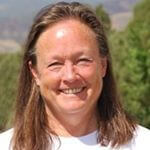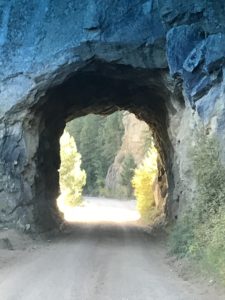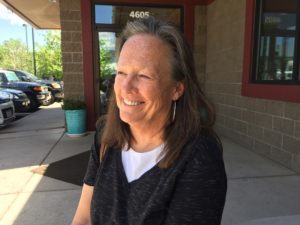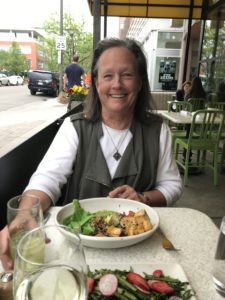Interview with Corinne Harmon
 Corinne Harmon is one amazing and inspiring woman! Super accomplished in the field of education, she has led with integrity and the aim of change. And what a leader she is! Enduring death threats to herself and her family as the superintendent of the Special School District in St. Louis, Missouri, Corinne would not back down from doing what she believed in, fighting for children’s rights and advocating for those with special needs. Corinne takes responsibility for her actions, thoughts and health–which has helped her survive two cancers. In addition to her teaching at the college and graduate level, she has a coaching practice based on principles of quantum physics and vibrational living where she helps others become leaders in their own lives. I interviewed Corinne several months ago, just as the pandemic began to rage through our country, but I find that so much of what Corinne has to say can be applied to deal with the more current discord and divisions we are facing.
Corinne Harmon is one amazing and inspiring woman! Super accomplished in the field of education, she has led with integrity and the aim of change. And what a leader she is! Enduring death threats to herself and her family as the superintendent of the Special School District in St. Louis, Missouri, Corinne would not back down from doing what she believed in, fighting for children’s rights and advocating for those with special needs. Corinne takes responsibility for her actions, thoughts and health–which has helped her survive two cancers. In addition to her teaching at the college and graduate level, she has a coaching practice based on principles of quantum physics and vibrational living where she helps others become leaders in their own lives. I interviewed Corinne several months ago, just as the pandemic began to rage through our country, but I find that so much of what Corinne has to say can be applied to deal with the more current discord and divisions we are facing.
Corinne has come to this earth to “sample everything.” I invite you now to “listen in” on our conversation. Buckle up and get ready to get a little sample of a woman who unabashedly stands in her power and challenges us all to do the same.
To learn more about Corinne Harmon, please visit her website Vibrational Living.
Diane: Hi Corinne! How are you doing in all this craziness going on?
Corinne: I’m doing okay. I really haven’t even had time to focus on it because I have a niece that just came down with HER2 positive breast cancer.
Her mother … my sister … passed away when she was 44. So, I’m picking up those pieces for her. And then, I just drove into St. Louis, and met my grandchild, was there for the delivery.
It’s like a renaissance degree!
Diane: So sorry about your niece, and, of course, your sister, but congratulations on the grandbaby!
I’d like to jump into your career. Your title is Associate Director of the Bachelor of Innovation Program at University of Colorado.
What is a Bachelor of Innovation?
Corinne: Across campus, you can get a B.S. or a B.A. in a certain major. Well, now you can get a B.I., a Bachelor of Innovation.
Every semester, we take on 40 clients, for each of our 40 teams of students. The students help them with their goals, dreams or visions. Do they need a new website? Do they need marketing?
In addition to the 24 credits with us, students take 15 credits in a cross-discipline core. If you’re going to be a B.I. major, say in finance, then you would have to take a cross-discipline core in engineering, global studies, or communication. You couldn’t take it in business. You’ve got to take something outside your field.
Diane: It’s like a renaissance degree!
Corinne: I think we’re the only one in the country that offers a bachelors. We celebrated our 10-year anniversary last year.
Diane: Have you worked there from the ground, up?
Corinne: No. When the program started, I was Chair of the Leadership Research and Foundation Department in the College of Education for six years.
Then, I left the university to go to St. Louis to help my mother pass away. I taught at the University of Missouri, St. Louis and came back and got into the innovation program five years ago.
“I wanted to be around people who looked at life very differently”
Diane: You have had a really interesting career path. When you were a little girl did you know you wanted to be a teacher?
Corinne: I didn’t really know until I came home in the summer during college … I grew up in Rochester, New York. My father worked at Kodak, and I worked in the factory. I met this young man who had a disability … I don’t know exactly what his job was. He was the kindest, most authentic human being I had met in a long time. He kind of took to me and would bring me little gifts and just made my day.
Because of him, I decided to go into special education. I wanted to be around people who looked at life very differently. And so, most of my career has been in special education, in the K through 12 sector. I became a superintendent twice and was an administrator for a long time. But, I also taught for 20-25 years.
“The superintendent at that time said to me, “You’re a born leader.”
Diane: Wow. A lot of people become teachers and stay teachers. What made you want to get into administration?
Corinne: There were two things. One was I wanted to affect change at a higher level.
Diane: Was there anything specific that led you to say, “I want to be an administrator because this has to go,” or, “This could be better?”
Corinne: I knew that that’s where the power was.
You couldn’t make greater changes from the classroom. You were too impacted by all the policies, and all the things developed by the board that didn’t make sense most of the time.
The other part was that when I was a teacher and on the NEA board of our district for teacher’s rights, the superintendent at that time said to me, “You need to go get your masters in leadership. You’re a born leader.”
Diane: Wow.
Corinne: I thought, “Oh, I don’t know about that, but I’ll try it.” So, I went and I got my masters in leadership. Actually, I got a masters in special ed, and then a masters in leadership, and then a doctorate in administration. They say you usually get tapped by somebody. He literally tapped me and said, “You need to be in leadership position.”
Within five years I was superintendent of that district. I went from assistant principal, to principal, to executive director, to director, assistant superintendent, and superintendent. And, that was the Special School District in St. Louis, Missouri. At that time, we were responsible for providing services to 26,000 kids with disabilities, in 23 districts with 4000 employees and a 200-million-dollar budget.
Diane: Wow!
“Am I in education, or am I in this alternate universe?”
Corinne: Since I came up from the assistant superintendent level, I knew whom on that team I could trust, and whom I couldn’t. Within a year I removed half and got people I trusted for the other half, and we turned that district around in two years. I fired bus drivers who were driving drunk and teachers that were strangling kids. No one ever fired these people. It was just ridiculous. The board was all union, AFL–CIO and NEA, which is fine; I’m all for unions. But the AFL–CIO didn’t want a woman superintendent.
My life was threatened many times. My children’s lives were threatened. They bugged my phone in the office. It could have been a show on T.V. I kept thinking, “Am I in education, or am I in this alternate universe?”
One woman on the board told me when I was made superintendent, “I’m going to get you out.” I am a lesbian and she knew that, and I felt she might use that against me.
I said, “Well, go ahead. Do what you got to do. But I do everything with integrity.” She was smart. She wanted an appointed board. I knew if I spoke up against the bill and the bill passed, I would lose my job. But I didn’t care.
I said, “If this is going to be an appointed board all the way through, there’s no more democracy.” And then, it passed. And so, within about three months, I was gone.
“Systemic change takes three to five years”
 Diane: So, did you feel you made lasting change, or did things go back to …
Diane: So, did you feel you made lasting change, or did things go back to …
Corinne: Things went back. Two years isn’t enough time. Systemic change takes three to five years.
They hired some guy who was just ruthless. What I see in leadership is that when one person goes, usually the opposite comes in right after.
People will still say that in those two years I was superintendent, we did turn things around financially. And, they knew that it was about kids. We made decisions about kids, for kids, and for staff. I think for that time period it was different, but it didn’t last.
Diane: So, I can’t even imagine what that must have been like for you. You gave your heart and soul for that two years. You got death threats. You were doing it for the kids, and then boom.
What did that do to you?
“I really trust that I’m taken care of. I’ve gotten this far. “
Corinne: It was really tough. It affected my health. I was worn out, exhausted, and had to let it go. They paid me severance pay for about 18 months, the rest of my contract. I just started teaching at the universities around St. Louis. And then, just stayed home and raised a puppy.
Just as I was about out of the severance pay, I got a call from the state department asking if I wanted to be interim superintendent of Missouri School for the Blind, which is a state-wide residential facility in St. Louis. And, I said, “Sure.” The thing is, things just fall into place… things just come.
I really trust that I’m taken care of. I’ve gotten this far.
When I teach leadership classes I say, “You know, if you’re going to get those positions and not have the courage to make decisions that you know could cost you your job, don’t bother being in those positions. You’ve got to believe you’re going to be taken care of somehow. That if you do what’s right, and you do it with the best intention, everything will be okay. It might suck, but everything will be okay.”
Diane: Yeah, that is so important. And, I’m totally with you on that.
Having that faith that things are going to be okay. It’s an important message for people right now. With the pandemic, the economy, people losing jobs … You just have that faith.
I think in leadership, especially, you need to be able to take risks for what’s right, even if it might be a short-term cost to you, personally.
Corinne: Yeah.
“I think being in the middle of those two siblings taught me to take care of people who needed help”
Diane: Where did you develop this fearlessness. Or it could be a feel the fear and do it anyway, kind of thing. Did you always have this determination, integrity, and strength?
Corinne: I’ve always had empathy for those who are marginalized.
And for animals and for nature. I’m a plant-based human being. I kill nothing.
There were five children in my family. I was the middle child. The sister two years older than me had epilepsy. There were a lot of times where she would have grand mal seizures in school, and I had to run to help her. And then, my brother, who was five years younger than me, stuttered. So, it was all about beating up kids in the neighborhood who messed with him.
I think being in the middle of those two siblings taught me to take care of people who needed help. Special ed was a great field for that … I don’t know if this is related, but when I was really, really little, I remember being outside and realizing that God was in everything around me. The trees, the ground, the earth.
I was like, “What a beautiful thing, to bring us to this place where God is everywhere.” It was like heaven on earth. And then, I want to Catholic school, and I saw the nuns. And, I said, “Oh my god. He sent …” (you know, it was a “He,” in those days. It probably is for some people, still.)
“God sent these teachers. Now they can teach us everything.” And then, the nuns started hurting kids. You know, the way they did in the ’50s.
“I did everything I could to escape this life, and it didn’t work”
It was my spiritual crisis. I lost all my faith at that moment and thought, “What have You done? How can this be?” It took me awhile to come out of that. I was the kid who started smoking cigarettes in fourth grade, drinking in eighth grade. You know, just broken.
I did everything I could to escape this life, and it didn’t work. Here I am. So, I think I just hit life really hard, and then came out of it. I had a family, had children, and that changes everything. But, I’ve always been tested. Like, can you live through this? Can you live through that?
Diane: Wow.
Corinne: And, my biggest test … the major life-changer was I’ve lost four members of my family to cancer, and I’m now taking care of my niece, who has it. And, I’ve had cancer twice. I’m the only one in the family that’s survived, besides my niece, who I believe will.
I got breast cancer the first time, and I wasn’t going to do chemo and radiation because I saw what it did to one of my sisters.
I really thought that’s what killed her and swore I wouldn’t do it. But of course, as soon as you say that …
“When I had breast cancer the first time … the question came immediately … ‘Do you want to live?’”
 I talked my acupuncturist, and he said, “I think you should do the Western medicine, but I’ll get you through it.” So, I did it all. Surgery, lumpectomy, chemo, radiation. I’d go to chemo, and he was right across the street, and he’d work on me, and say, “Come back in 10 days, 4 days,” whatever. I did all that. And then swore I’d never do chemo again.
I talked my acupuncturist, and he said, “I think you should do the Western medicine, but I’ll get you through it.” So, I did it all. Surgery, lumpectomy, chemo, radiation. I’d go to chemo, and he was right across the street, and he’d work on me, and say, “Come back in 10 days, 4 days,” whatever. I did all that. And then swore I’d never do chemo again.
I was going to back to Colorado Springs to teach, after my mother passed in 2015, because my position was still open. The day before I was going to leave, they told me I had uterine cancer.
So, I stayed there … had a hysterectomy. They wanted me to do chemo and radiation, and I said, “No, I won’t do it.” And, the doctor was almost violent. Two of my three kids were like, “Mom, you’re going to die if you don’t do it.” And, I said, “I’m not looking at it that way. I will live if I don’t do it. And, it’s my decision.”
The way I frame it is, when I had breast cancer the first time … the question came immediately, as I think it does for all people, “Do you want to live?” And, my answer was, “Yes, I do. And, I will.” And then, when this happened the second time, the question that came was, “Can you die?” Because, they say to you, “You’re going to die if you don’t do this.”
Diane: So, I just have to tell you, I had breast cancer and cervical cancer. I’m feeling so much of a connection to your experiences.
Keep going. I’m sorry to throw that in there.
Corinne: No, it’s okay. I’d love to know how you’re doing.
Diane: I’m all good. You, too? You all good?
Corinne: Yeah, I’m all good.
Diane: Good.
‘It took me two days to answer that question, ‘Can I die?’”
Corinne: Since my sister got cancer in ’92, I’ve been looking at all the health stuff and completely changed my life. And so, it’s not like I made that decision without information-
I didn’t make it easily. It took me two days to answer that question, “Can I die,” and I thought, “Yeah. If I am going to die because I don’t do chemo, then I guess it’s time. But, I’m not doing chemo. I’m just not, and I can’t. I can’t put that in my body after I’ve been so cautious about everything I put in my body for all these years.” It’s poison to me, it feels like. So-
Diane: It’s counter-intuitive, right?
Corinne: Yeah. It’s counterintuitive.
Diane: What turned you around to “cleaner” living, and paying attention to what you put in your body?
Corinne: I think it started in the 1980s. I was functional, for sure, but I wasn’t taking care of my body.
I had flown out to California to hang out with my two of my sisters, and I had a breakdown. The whole time I was with them, I just cried. As I flew back to St. Louis … the moment that the wheels of the plane hit the tarmac, I said, “You have to change your life.” And, that was it.
Diane: It happens like that sometimes.
That’s very powerful.
Corinne: Thank God, yeah.
Diane: You mentioned earlier that you’re a lesbian.
When did you realize that? When did you come out?
“I had to step back from my family of origin for a little while”
Corinne:It was in 1994. I’d had two marriages. One with a father of the kids, for 16 years. When we divorced, I met this guy at work who was 19 years older than me. We ended up being best friends after, but we were married about a year, and then it just didn’t work.
I always thought I could go either way. And then, I met this woman, and it just started. And, coming out was hell. My oldest sister who had always been my advocate had passed away. My family had a hard time at first. Not so much my children, but my family of origin. My parents just couldn’t accept it and my younger sister couldn’t either. So, I had to step back from my family of origin for a little while.
My children were younger. It was a little bit of a shock, but it seemed to be okay. I told the kids, “You can either tell your friends or not. ” Because, kids would come over to hang out, I think some knew, some didn’t. It was theirs to do how they wanted to.
That was one of the threats when I was superintendent, that they were going to out me in the paper.
Diane: We weren’t thinking the ways we do now in the 90s.
“So, it seems like I just came in life to sample everything I could”
Corinne: No. The only thing that made me angry was, “How dare you. My children are doing it in their own way, and you’re taking that away from them …”
But they never did. There were always threats, but they never did.
I’m single now. I’ve been single for a good 10, 12 years.
So, it seems like I just came in life to sample everything I could.
Diane: That’s wonderful.
Corinne: … How this feels, and see how that feels, and try to maneuver and negotiate through them.
Diane: Do you date?
Corinne: I haven’t dated in a long time. I would date, but I haven’t met anybody that I would consider. My kids wanted me to go on a dating app thing.
And, I’m like, “Ugh.” For me, it’s got to be organic, like you just meet somebody.
I would love to share my life with someone, but I trust that … it’s like anything. The timing of anything is not in my hands.
The person will show up when it’s time.
Or never. You have to be okay, wherever you are.
Diane: So, what are you sampling these days? Is there anything new that you’re experimenting with?
What’s this quantum physics? When I read that in your bio, I was like, “This is scaring me.”
“Everything you do impacts other people; every thought, word, feeling … everything”
 Corinne: Oh, no, no. For me it’s a very spiritual thing. There’s science, of course, but … it’s the understanding that everything’s connected.
Corinne: Oh, no, no. For me it’s a very spiritual thing. There’s science, of course, but … it’s the understanding that everything’s connected.
Everything you do impacts other people; every thought, word, feeling … everything.
Diane:I love that.
Corinne: Actions. And, there’s the morphic fields. As a leader, I was really interested in that, because a morphic field basically is another word for the collective consciousness.
When I talk about it in leadership classes, I mention the Biology of Belief and how important that is. I give the example of open pastures for cows. All people had to do was put grates on the ground and paint them yellow, and the cows wouldn’t cross out of the field.
Over time the babies learned, and you didn’t need the grates anymore. You just had to paint yellow, and they wouldn’t cross. So, the collective consciousness comes from generations. Like African Americans, with slavery. American Indians with the travesty of all that. They literally have genetic mutations because of those experiences, passed on through generations because of the slavery, because of the torture. And so, some of those cultures are more predisposed to blood pressure issues, or diabetes. That’s from generations of marginalization.
When I’m teaching, and when I think about my life, I think, “How am I going to change the morphic field?” How can I … especially in institutionalized education … break these barriers?
“What are you really trying to do here, as a leader in this field, or as a leader in your life?” For me, on a personal level, as the only one that has had cancer twice in the family and lived, I truly believe that I can stop it, so my children won’t have it, and their children won’t have it. Stop it with me.
“Vibrational living is being aware that you are part of a greater consciousness”
Diane: Break the cycle?
Corinne: Break that morphic field of our family lineage.
Diane: I studied shamanism, and I’m doing a lot of research on intergenerational trauma now and how it gets into the genes. In the shaman traditions I studied, you’re not only healing future generations but healing your ancestors as well.
Corinne: Exactly.
Diane: It’s very powerful.
Corinne: Very powerful.
Diane: And, you’re powerful! You step into that power. I love that! We need more people who are unafraid to step into their power.
Corinne: Well, you must be doing that, also.
Diane: I try.
Corinne: I bet you’re doing it, not trying-
Diane: Wherever I can, I do. And, when I catch myself not, I …
Corinne: Start over again.
Diane: Yeah. Your students must love you.
Corinne: I’m not sure. When I get into quantum physics sometimes, I think they think it’s wacky.
Diane: “Woo-woo,” right?
Corinne: If I was teaching graduate level, like I did when I ran the leadership department, that would be different. But, these undergrads.
Diane: It’s too out there for some of them.
So, what is this vibrational living?
“If I hold negative thoughts in my head, then what surrounds me is negativity”
Corinne: That came in my studies of health and well-being. It’s quantum physics, too. Everything’s a vibration. Colors, numbers, sounds … all of life, the whole earth vibrates at like 582 hertz … I forget the exact number. But, Mother Earth … that’s her heartbeat. And so, the more we’re in alignment with that vibration, and listening to that kind of music, the more grounded we are.
If I hold negative thoughts in my head, then what surrounds me is negativity. If I keep it positive … It’s in the food you eat, and the colors of the food you eat, and the prayers, meditations. Vibrational living is being aware that you are part of a greater consciousness.
You are constantly contributing to it in one way or another, whether it’s your words, actions, and thoughts that are of well-being to others, or whether you’re judgmental, critical, and opinionated. You are responsible for the whole world, in a way. Or, your part in the world, I should say.
“I coach people in health, in leading their own life, and/or leading an organization”
And, when I look at things that I can’t control or impact … You know, I watched the movie Dark Waters the other night, and it’s so sad about DuPont, and how bad that is.
Diane: Yes.
Corinne: I can’t take DuPont down, but I can make my sphere around me better. I can feed myself and my family well. And I can be kind and generous at any moment that I can. So, I just pull it down to my level, because the world’s too much for me. And, I think it is too much for a lot of people.
Diane: Well, if anyone can take DuPont down my dear, it’s you.
Corinne: There you go. I wish I could.
I do leadership coaching with people to help them in terms of how to create the space for other people to be who they are, but also to guide them through in a kind, but direct way, to be better for whatever they’re doing.
Diane: When you say leadership coaching, does the person have to be a leader in a field, or can it-
Corinne: No, no. Any person. Right now, I’m doing more coaching. It’s somewhat nutritional, but also leadership for people who are going through chemo.
I am working with two oncologists at a hospital here to try to build a wellness center. One, who was a friend’s oncologist, is all into plant-based. And, I’m certified in plant-based.
We met and hit it off, and we’re trying to build a wellness center connected to the hospital, not just for people with cancer but also diabetes, and other chronic diseases. Part of that is to help teach them about plant-based living and alternative therapies.
I coach people in health, in leading their own life, and/or leading an organization.
“To me, coaching is asking a bunch of questions … I don’t have their answers, but I can help people find theirs”
 Diane: Do you coach people in changing their thoughts? That kind of stuff?
Diane: Do you coach people in changing their thoughts? That kind of stuff?
Corinne: Yeah, just shifting their-
Diane: Consciousness?
Corinne: Yeah, their thoughts and how they behave and act, because they’re creating it.
You have to be really careful how you approach that, especially with people with chronic illnesses. You know, I’m not going to say, “Well, it’s your fault you got this.”
I don’t do that. It’s just like, “What can you do now to change your life? What can you do differently?” Basically to me, coaching is asking a bunch of questions, like you’re doing right now.
You know, just ask questions, and then let them have the answers.
I don’t have their answers, but I can help them find theirs.
Diane: That’s wonderful.
Corinne: I don’t have their answers. You know, I think the older I get, the more feisty I get.
Diane: Let’s talk about that for a second, because while people of all ages–I’m very happy to say–read this blog, it’s really targeted to women 50 and older. I find it a very liberating age.
Corinne: I do, too.
“If you don’t use your voice now, when will you ever use it?”
Diane: What kind of shifts have happened to you? You said you’re feistier, how? And, what else?
Corinne: I think with the years, I’m able to see what works and what doesn’t work in systems around us and in my own life. Nothing, essentially, is changing in the systems, in big ways. We just bail out systems, and then they go back to doing what they always did.
I don’t think we’re a child-centered society at all. I don’t think we’re … They call it a democracy, but I don’t see how that can be when you take voting booths away from people in disadvantaged areas. I mean, there are so many things that we are just more sophisticated at covering up.
I think as time goes on, you just see all the holes, and the smoking mirror.
If you don’t use your voice now, when will you ever use it?
Diane: That’s right.
Corinne: I felt that way back in my 50s, and 40s, even.
I tell people that too, especially women in leadership. “If you don’t use your voice at the table, whether it’s the dinner table, or a table at work, who’s going to do it, and when?”
You just have to use it with some diplomacy … some directness and diplomacy … and be able to say some hard things in the way that it can be heard.
Then, the more you do it, the more confident you become, and the more you can name things as you see them, but in a consciously respectful way. And, understand that everybody’s honestly doing the best they can at any given moment, it just doesn’t look that good. And, try to meet them where they are.
“Women need to step into places of power more, and use their voices of empathy and care and understanding, but also directness”
Diane: Everybody? I’m thinking of someone, in particular.
Corinne: That’s the best that person has.
Diane: Oh, boy.
Corinne: It might be really crappy-
Diane: Uh-huh.
Corinne: … but, that’s the best they have, or they’d be doing something different.
For women especially. We have been marginalized for centuries, and I think the changes we need will come from women, and therefore they need to step into these places of power more, and use their voices of empathy and care and understanding, but also directness. It’s like the mother bear will protect her cubs and use that fierceness when necessary.
I think with age, the more you do that … consciously do that … the more it becomes easy to do.
Diane: And the better you get at it, right?
Corinne: The better you get at it. And, it’s like … because you can see the façade much quicker.
And, you can penetrate it, as long as you have the good communication skills to do so.
People can actually hear you. They might not like it, and they might tell you that, but you’ve put it out there.
You’ve got to put the ripple out there. I think when you’re younger, you’re still caught in these identities of being a daughter, and then a wife, or a partner … and, you’re not taken seriously-
If you express feelings, it’s like, “You need to tone it down.”
But “No!” Women don’t need to tone it down. But, they’ve been taught that. And, how to be pleasers-
Diane: That’s right.
Corinne: … and all these things, and caretakers, and I get that.
Diane: People might not like what you have to say, and we’re taught to be liked.
Corinne: Yes, exactly.
“It must have been a contract that she and I had, that I would help her cross over”
 Diane: So, it’s a challenge, but once you start doing it, man … it’s-
Diane: So, it’s a challenge, but once you start doing it, man … it’s-
Corinne: Well, I think you find yourself later in life.
Diane: That’s right.
Corinne: I think you find the person you were meant to be.
I’m in the process of writing a book now, and the lady who wants to publish me said, “This was why you were born. It was for this time.” And, I said, “Maybe.” When I held that baby this weekend, I thought, “I want to see you turn 30,” which would make me 98.
Diane: There you go.
Corinne: I would hate to see women just shrivel up as they get older because they’re tired.
I think they still are the main caretaker of the families and they’re working. And the sandwich thing, where they’re helping the elderly of their family.
Diane: So, you said you helped your mother die.
What was that like?
Corinne: It was amazing.
She’d been struggling with cancer off and on for about two or three years before I moved back. It must have been a contract that she and I had, that I would help her cross over. My mother was a woman of great faith, but she didn’t like all the rules of the Catholic Church. She prayed to Mary all the time.
So, fighting for her in the hospital, the rehab … it was just … a lot of fighting for her. It was time for hospice, and she and I were in her apartment, just the two of us for five days, and it was incredibly tragic, and incredibly beautiful … equally so.
I was giving her dabs of morphine under her tongue, and she would go in and out. She had lost two daughters to cancer.
Diane: That’s terrible. Terrible.
“And then, her hand would go up, like she was shaking all these hands”
Corinne: And, she said, “What do you think it’ll be like when I cross over?” And I said, “Mom, what do you believe?” And, she said, “Oh, I believe I will see everybody I love.” And I said, “Then that’s what it is.”
I’d say, in the last 24 to 48 hours, she would go in and out of consciousness, and when she came back out of consciousness, she’d say, “I just saw Robbie. … Robert over there.” That was her brother who died when he was 18 months.
Diane: Wow.
Corinne: And, I said, “Well, how was that?” and she goes, “It was good. And, I saw Uncle Elmer.” One time she came back, she said, “I talked to Mary.” I knew she meant Mary-Mary. And I said, “Wow. How was that?” And she goes, “I want to go there. I want to go see.” I said, “Okay,” because, I kept thinking, “Why aren’t you going? Get going.”
One point in the middle of the night I was next to her. She said, “Who are all these people in the room?” I said, “I don’t know, Mom. Do you recognize anybody?” And, she said, “No.” And I said, “Okay.” And then she said, “What’s that handwriting on the wall? Do you see it?” And I said, “Yes,” but I didn’t.
And she says, “It says, ‘In the name of the Father and the Son and the Holy Spirit.” And I said, “Okay.” And she said, “What does it say under that?” And I said, “I’m not sure.” And then, her hand would go up, like she was shaking all these hands.
“‘All anybody needs to know is, God is love. That’s all anybody needs to know’”
Diane: Wow.
Corinne: The night before she passed away, she turned toward me. I said, “Mom, what’s wrong?” And she said, “I’m scared.”
And I said, “Of course you are, it’s okay. Do you want me to pray the rosary for you?” And she said, “Yeah.” So, I prayed the rosary next to her, and she fell asleep, and she never woke up.
Diane: Ah, wow.
Corinne: But, it was beautiful … it was just beautiful.
The priest had come before and gave her last rites. She was really aware then. She started lecturing him about the Catholic Church, and how they need to get on board: “You know, all these people fight, and kill each other about God, and what they believe God is. All anybody needs to know is, God is love. That’s all anybody needs to know.” I’m like, “Wow.” So, it was a blessing. It was a gift.
I wouldn’t trade that for anything.
Diane: That’s wonderful. And, as I’ve spent this last hour with you, I think it’s really important for women to know that you can take care of others and still be in your power.
“The strength of women is immeasurable”
 Corinne: Yeah.
Corinne: Yeah.
Diane: And, that’s a wonderful use of power-
Corinne: It is.
Diane: I think that’s part of our gift as women, to be able to hold both of those.
Corinne: The strength of women is immeasurable.
Diane: Thank you for being such a fabulous example of how to hold both.
Corinne: You’re welcome.
Diane: Is there anything else you feel like you want to share, that we didn’t get to?
Corinne: Who knows? You’ll just have to read my book when it comes out.
Diane: Sign me up!
Corinne: I really appreciate what you do.
It’s so needed. There are so many women over 50.
Diane: I know, and we’re so wonderful, aren’t we?
Corinne: Yes, we are. Yes, we are. Very awesome.
Diane: So, this has been such a pleasure for me.
Corinne: Oh, for me, too. Thank you.
Diane: I hope we connect again. Enjoy that grandbaby and good luck to your niece and to you with all your wonderful projects.
Corinne: Thank you. Same to you.
If you want to learn more about Corinne or get in touch with her, please find her at Vibrational Living.
Corinne is an inspiring example of a woman who is unafraid to speak her mind and take a stand. I’d love to hear you how you lead in your life and where you have made your voice heard. Please leave a comment or send me an email.
See you September 7th!
XOXO
Diane



I was blown away throughout the entire interview. Wow! Corinne has experienced so much & has come out on the other end with grace & wisdom & humility & empathy & strength & courage…
One of my favorite parts of the interview:
When I teach leadership classes I say, “You know, if you’re going to get those positions and not have the courage to make decisions that you know could cost you your job, don’t bother being in those positions. You’ve got to believe you’re going to be taken care of somehow. That if you do what’s right, and you do it with the best intention, everything will be okay. It might suck, but everything will be okay.”
But everything Corinne said made sense so I was nodding in agreement throughout. Thank you for bringing Corinne to us, Diane.
I’m going to look at her website now 🙂
She blows me away too, Sarita! LOVE what she has to say about leadership and about believing “everything will be okay.”
I enjoyed this, Diane!
Thank you, Linda!! So wonderful to hear from you!!
Incredible ! In every way!
I’m totally with you on that, Elaine! Corinne is incredible!!
Oh my goodness, I LOVE THIS WOMAN. What an incredible conversation. And this right here –“I can’t take DuPont down, but I can make my sphere around me better. I can feed myself and my family well. And I can be kind and generous at any moment that I can. So, I just pull it down to my level, because the world’s too much for me. And, I think it is too much for a lot of people.”–feels exactly like my own philosophy. Thanks for this beautiful interview, Diane.
I LOVE her too, Alison!! Loved the DuPont reference and how Corinne makes leadership and change more manageable for those of us who “can’t take DuPont down.” Corinne Harmon is incredible–and I’m not surprised that you, amazing lady, felt a connection!!